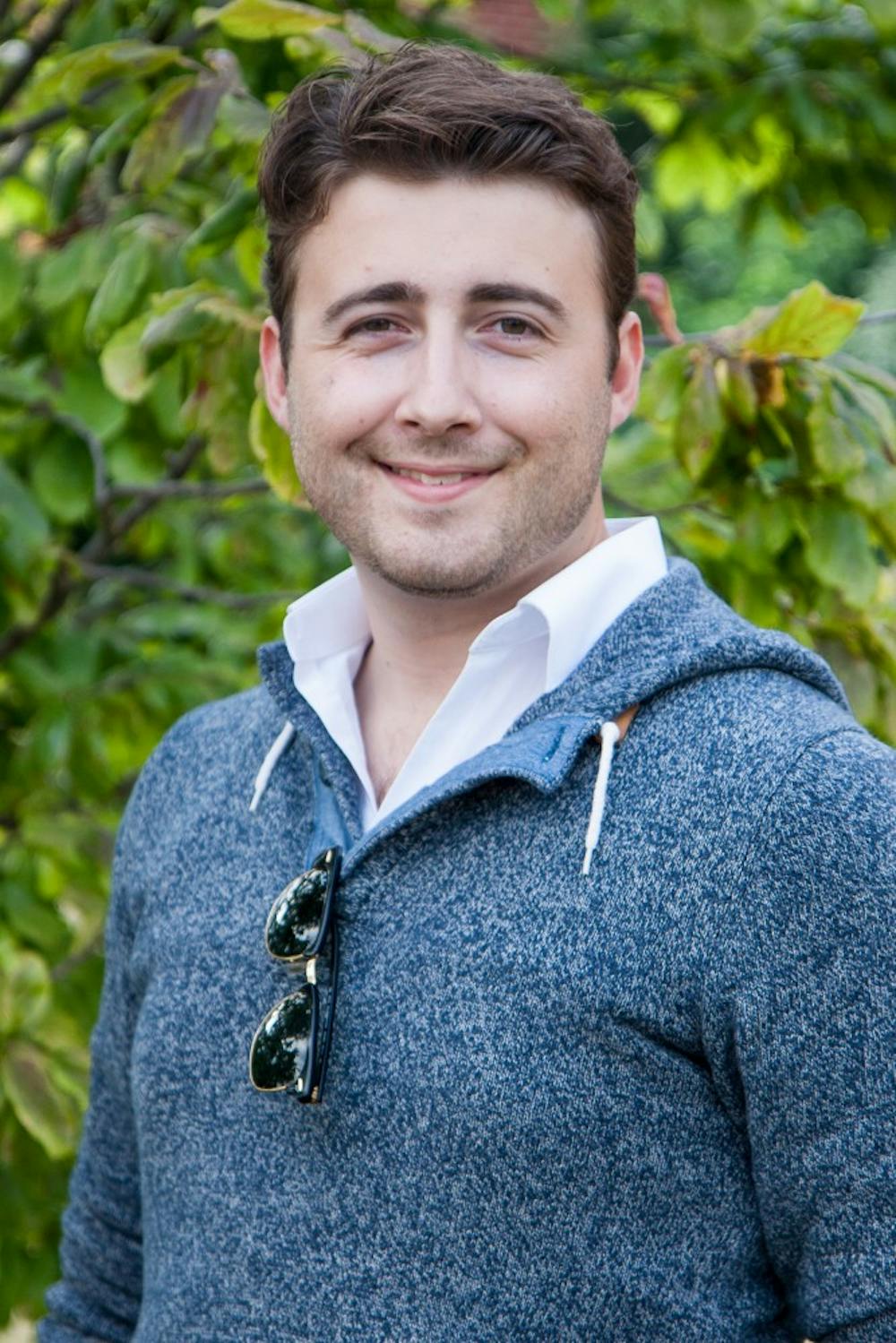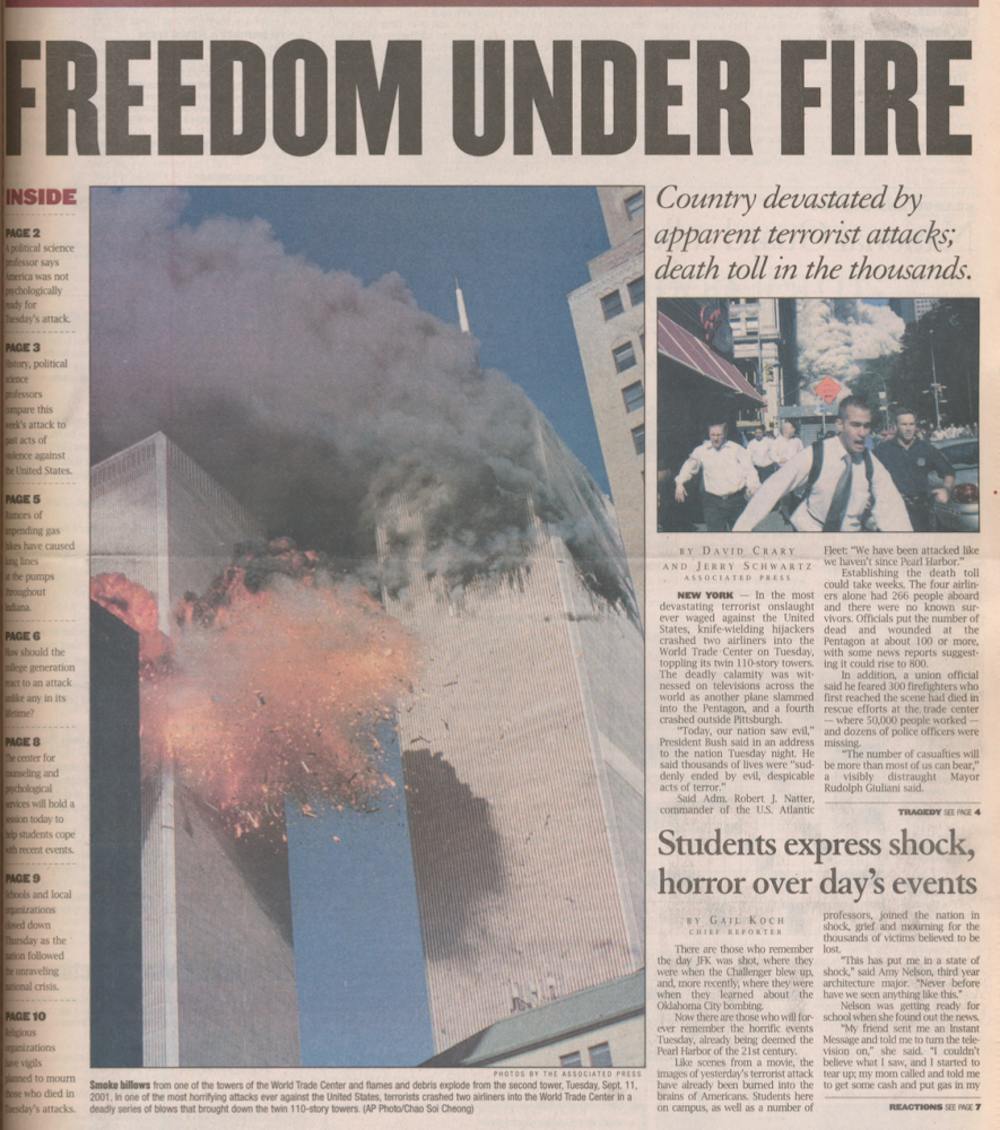
My car rumbled to a stop as I sat and watched an American flag flutter in the afternoon breeze. Beyond that iconic image of patriotism was a world I never thought I’d find myself again – high school.
I knew what my assignment was, and I knew how difficult it could be. I imagined my work as something of a hallmark, something that continues the story of us, the story of a post 9/11 America. It was my duty, I thought.
Sixteen years ago, this nation was very different. In a moment of terror, the United States of America claimed the motto – painted on the sides of buildings, stuck to the bumpers of cars, chanted at sporting events, handwritten on notes, held in the hearts of survivors – that we will never forget.
As I walked underneath the flag, positioned a half-staff in remembrance of the 2,996 people who lost their lives that day, I wondered if we had done exactly what we said we shall never do. I wondered if their memories and stories had been neatly shuffled into a history book, waiting to be read by Americans who have no recollection of their final day.
Inside the old Muncie Central High School – beyond the lockers and hallways and high school clichés – portraits of Abraham Lincoln and George Washington watched beyond painted eyes as students struggled to understand how they felt. From a projector, they watched men and women fall to their deaths from the World Trade Center 16 years before.
A girl in the front spoke aloud, breaking the tension I imagined to be in the room. She was not sure of her words, but they were loud enough for the whole classroom to hear.
“The building fell,” she said. There was a question in her voice.
A boy from the back of the classroom echoed her memory, recalling what he had been told from years prior.
“They both fell,” he said, remembering that the documentary showed each building hit by a plane. As he said it, he quickly glanced in my direction. He knew the answer, but his eyes told a different story.
He looked to me, an attempt to reassure his answer. He only knew what he had been told. Maybe he was worried that he had forgotten, worried that the facts of one of America’s darkest days had been swept away with the dust and debris from Manhattan’s downtown. It was all in a second, a moment of truth. He didn’t look away.
I nodded in reassurance. I hoped that my nod reminded him that two other planes had gone down that day, one in Washington D.C., the other in a field outside of Shanksville, Pennsylvania.
He continued to watch the documentary as some students in front of him focused on their phones and laptops. One student laid his head down. He appeared to be asleep by the end.
Later on, after the classes had switched for the final time of the day, students hurried through the halls.
Through the noise and confusion of the hallway, I heard a voice, unidentified in origin.
“It’s bring-your-plane-to-work day,” the student said. Others around the person laughed, most in disbelief, I’d like to think. No one stopped the person who said it. No one reminded the person of what the day meant. No one bothered to remember, but then again, they didn’t actually have memory of that day 16 years ago.
Beyond their snide comments, I was shaken with an idea. I wasn’t much different from them. There are moments that defined this country, just as 9/11, that hold little emotional significance to me.
When the Japanese bombed Pearl Harbor, it shocked the nation. In 1963, American’s mourned the death of their young president. In 1986, school children watched live as the Challenger space shuttle exploded en route to the stars.
I do not remember these moments. For many, they do all too well.
All I can tell you are the facts that I can find in a text book. The ink may never fade, but with each passing generation, the memories do.
In the world of high school, the lesson of memories only lasts a set time. After Mrs. Snider had turned off the projector, the bell rang and the students filed out. They packed their bags and moved on.
They’ve been given important facts, things they’ll remember for the test.
They’ll remember that two towers no longer mark the skyline of one of America’s greatest cities.
They’ll remember that they were told the world changed forever after that day.
They’ll remember that four planes were hijacked by terrorists on Sept. 11, 2001, and that 2,996 people lost their lives.
Beyond that, I don’t know what they will remember.





